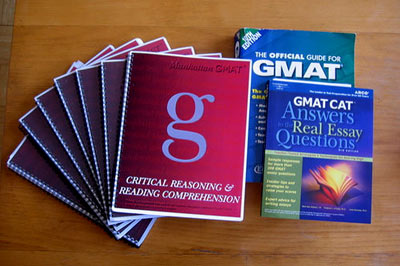Taking the GMAT in Nepal

Kathmandu: Ashish Bhardwaj, South Asian Regional Director for Graduate Management Admission Council (GMAC), the organization that spearheads the Graduate Management Aptitude Test (GMAT) international examinations, spoke to Republica on Tuesday night at Hyatt Regency Hotel.
On a three-day visit to popularize the GMAT examinations, Ashish has been working with popular test-preparation agencies like UCCI, NIEC, and Alfa-Beta to help make GMAT examinations well-known amongst the management students within the country.
Recently, the GMAT examinations have experienced a 40% drop in test takers from 2009 to 2011, and Ashish believes this to be because of inadequate information dissemination. Since Nepali students studying outside of the country still seem to be attracted to the examinations, the decline in test-takers in the country has to be accounted as due to the lack of information.
“Taking all the statistics into account, we have to account the decrease in test-takers within the country to the fact that test isn’t well-known within the country,” says Ashish. “We’re aiming for more peer-to-peers marketing of the GMAT. If a friend tells his friend about the GMAT and the chain continues, we’re sure we’ll experience a significant rise in GMAT test-takers,” he adds.
The GMAT examinations, currently, is the industry’s leading examination for management students. Accepted across the world, in the US, the UK, and Australia, among other countries, the GMAT is the gateway to graduate management education abroad. Another fact that seems to amaze Ashish is that Nepali students who have taken the GMAT examinations send 80% of their scores to colleges in the US and only 6% of these scores to Indian colleges. Ashish believes that India has a much better prospect for students, since it is closer to home and cheaper in comparison to the US. But since Nepali students don’t know about that fact that Indian institutions are growing in the quality of education, there have been low application rates to Indian colleges. He thinks that due to this lack of knowledge about colleges in India, Nepali students are missing out on opportunities for better management studies aboard.
“We think that Nepali candidates are missing out on a lot of prospective colleges aboard because they are not aware. And my mission here is to try and give this information to students who want to pursue management studies outside of their country,” adds Ashish.
Kathmandu College of Management (KCM) is the official center for the GMAT tests. It costs US$250 per person to sit for a test.
source: republica(2011),"Taking the GMAT in Nepal", republica, 17 Nov 2011
Posted on: 2011-11-17































